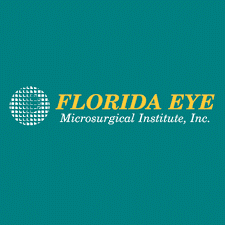Home » News and Events » What Is An Ocular Migraine?
What Is An Ocular Migraine?
Posted by: Florida Eye Microsurgical Institute in Eye Health

An ocular migraine is a rare condition characterized by temporary vision loss or even temporary blindness in one eye. Ocular migraines are caused by reduced blood flow or spasms of blood vessels in the retina or behind the eye. In an ocular migraine, vision in the affected eye generally returns to normal within an hour.
Symptoms
Shimmering or flashing lights, zigzagging lines, stars, and black spots are all visual cue symptoms; you’re most likely having an ocular migraine, making it very difficult to read, write or drive. It can occur with or without the pain of a migraine headache. A blind spot in the central area of vision can start small, get more extensive, and usually last less than 60 minutes.
Causes & Risk Factors
Ocular migraines are typically caused by reduced blood flow or spasms of blood vessels in the retina or behind the eye. Risk factors include:
- Ocular migraines are believed to have the exact causes of migraine headaches.
- More common in women than men.
- The most common age group is 30-39.
- Family history of migraine.
Treatment and Prevention
- Same as the prevention of migraines.
- Avoid migraine triggers.
- Common triggers include stress, hormonal changes, bright/flashing lights, drinking alcohol (red wine), changes in the weather, skipping meals/not eating enough, or too much or too little sleep.
- Keep a headache journal, including information about what you were doing, eating, or taking medications before or after a headache.
- If you perform tasks that require clear vision, when an ocular migraine or visual migraine occurs, stop what you are doing and relax until your vision returns to normal.
- If you’re driving, park on the side of the road and wait for the visual disturbances to pass completely.
- Your doctor can advise you on the latest migraine medications, including medicines designed to prevent future attacks.
If your ocular migraines or migraine auras (visual migraines) appear to be stress-related, you might be able to reduce the frequency of your migraine attacks without medicine by simply:
- Eating healthful meals regularly
- Avoiding common migraine triggers
- Getting plenty of sleep
- Trying stress-busters such as yoga and massage
Don’t Delay, Or Deny Your Eye Health
Any visual loss is severe. Call TODAY to schedule an appointment if you experience any problems affecting your eyesight.
CLICK HERE TO TAKE A VIEW OF A LIVE VISUAL AURA

References: American Academy of Ophthalmology and the American Migraine Foundation. This blog provides information and discussion about eye health and related subjects. The content provided in this blog and any linked materials are not intended and should not be considered medical advice. If the reader or any other person has a medical concern, they should consult with an appropriately licensed physician.
